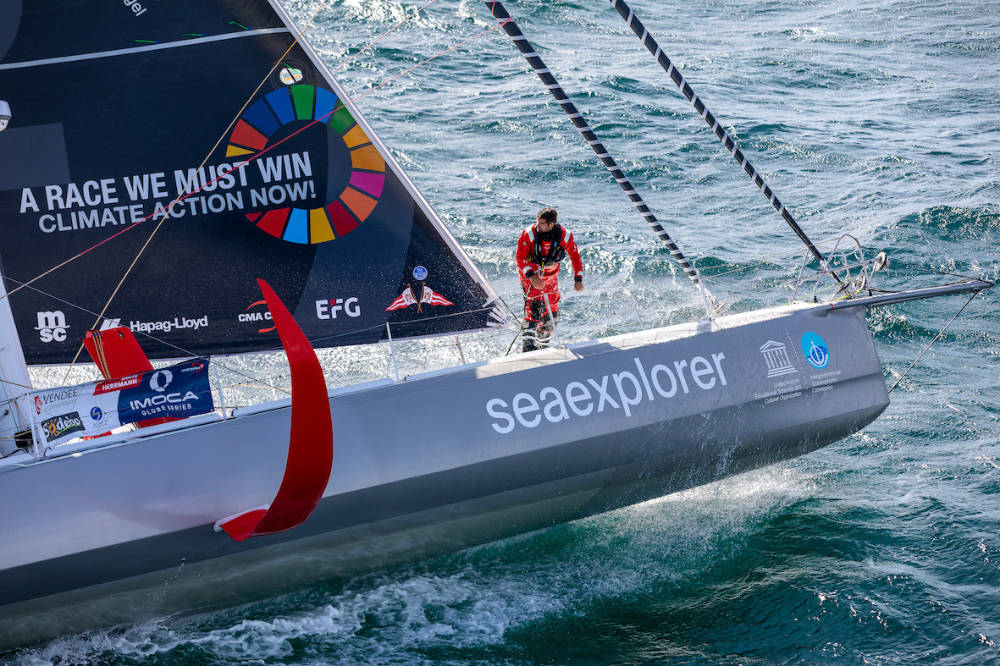Boris Herrmann is Germany’s best-known sailing athlete and one of 33 skippers who set off sailing 45,000 kilometers non-stop around the globe in the Vendée Globe, the world’s toughest single-handed sailing race. Herrmann has also been involved in environmental and marine protection for years. At the beginning of 2020, he initiated and launched a mangrove reforestation project in the Philippines called Malizia Mangrove Park as a climate protection measure. The goal is to plant 1 million mangroves during the Vendée Globe Race and thereafter at https://maliziamangrovepark.de. The 200,000 mark was reached in the last days.
Boris Herrmann carries the message “A Race We Must Win” and the wheel of the United Nations Sustainable Development Goals on his sails – to highlight the fight against climate change and for the health of the oceans. He uses his sporting platform to raise awareness, inspire change and highlight solutions to the climate crisis through action and outreach. His mission is to combine sailing, science and education to bring the climate crisis up in the consciousness of socie-ties worldwide. Last year, he sailed the Swedish climate activist Greta Thunberg across the Atlantic to New York for the UN Climate Action Summit, emission-free and with a high public profile. In close cooperation with the scientific community, Herrmann has also developed an education program for children and young people on climate and ocean protection. The Malizia Ocean Challenge book for schools can be downloaded free of charge from https://www.borisherrmannracing.com/education/ and is available in eight languages.
Reforestation as a means of climate protection
This year, Boris Herrmann started a mangrove reforestation project in the Philippines together with the German-Philippine environmental organization Mama Earth Foundation. Under the name of his racing team “Malizia”, the mangrove forest in the Malizia Mangrove Park on the southern coast of Mindanao in the Philippines is being reforested. Mangrove forests grow along tropical and subtropical coasts and, along with tropical rainforests, are among the most species rich and adaptable ecosystems on earth. But their existence is endangered. Over the last 40 years, about one third of the world’s mangrove stocks have been destroyed.
Why mangroves? Mangroves are enormously important for reducing CO2 in the atmosphere. Mangrove forests absorb at least as much CO2 per unit area as tropical rainforests – some studies even speak of many times the amount of a forest of the same size on land. In addition, mangroves, which can grow in fresh or saltwater, form a strong natural barrier against erosion and provide food and income for over 120 million coastal inhabitants worldwide. Only in recent years has the understanding spread that this ecosystem is enormously important and worth protecting. In the meantime, their importance as a means to fight against climate change has been recognised and they are often placed under nature conservation.
Reforestation projects such as the Malizia Mangrove Park initiated by Boris Herrmann help to rebuild the population. By beginning of January, donations for more than 200,000 mangroves have already been collected, 144,000 mangroves have already been planted, and another 60,000 seedlings are currently being grown in nurseries. The Davao Oriental State College of Science and Technology is monitoring and documenting the planting.

